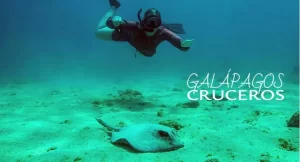Responsible Travel, as a tour operator, considers the following guidelines in order to create a satisfying experience during your trip to Ecuador. However, please note that any requirement may change without prior notice, and it is the responsibility of each traveler to ensure compliance with the current entry requirements.
Entry Requirements
Visa: The duration for visiting the country is 90 days per year; if you plan to extend your stay, it is recommended to pay for an extension.
List of countries that require a visa to enter Ecuador
| Afghanistan | Guinea Bissau | Republic of the Congo |
| Albania | Haiti | North Korea |
| Angola | Kenia | Senegal |
| Bangladesh | Kyrgyzstan | Sierra Leone |
| Cameroon | India | Syria |
| Chad | Iraq | Sri Lanka |
| Côte d'Ivoire | Iran | Somalia |
| Cuba | Libya | Sudan |
| Egypt | Mali | Sudan del Sur |
| Eritrea | Mauritania | Tajikistan |
| Ethiopia | Myanmar | Uzbekistan |
| Philippines | Nigeria | Venezuela |
| Gambia | Pakistan | Vietnam |
| Ghana | Nepal | Yemen |
| Guinea | República democrática del Congo |
Apply for a visa
In case you need to apply for a visa and enter the country, please contact the following email addresses: consejeria@cancilleria.gob.ec and citasvisas@cancilleriga.gob.ec.
For more information, there are links to Ecuadorian embassies as well as embassies within the country.
Embassies in Ecuador:
Ecuadorian Embassies Abroad
- América
- Europa
- Asia
- África
- Oceanía
In case of entering the country by land or river
The Government, through its Ministries, stipulates that foreign citizens entering the country via the land or river borders of Colombia and Peru may present their apostilled certificate indicating they have no criminal record; this certificate must have been issued in their country of origin or residence within the last five years. Alternatively, they may request a review of the corresponding information through the Ecuadorian Migration System (SIMIEC).
The following individuals are exempt from submitting the declaration:
- Holders of a valid Ecuadorian visa
- Holders of diplomatic passports
- Children and adolescents under 18 years of age
- Victims of human trafficking.
COVID-19 Rules
At the moment, no COVID certificate is required, but if you experience symptoms before your trip, you may fill out a health declaration and bring it to the airport.
Passport Validity Conditions
The passport must be valid for at least half a year. Access is restricted without a valid or officially reported lost document.
Galapagos Islands
You may visit for up to 60 days. To enter, it is necessary to present:
- A hotel reservation.
- Your round-trip flight reservation to mainland Ecuador.
- Completed a Galapagos Transit Control Card online before the trip, along with its printed copy
- Travel medical insurance (mandatory)
Currency Exchange
When leaving the country, you must declare any currency if the total exceeds 1,380 dollars.
Personal Identification
By law, you must carry your identification document with you. Always keep a copy of your passport, including the pages with your photo and the entry stamp to Ecuador.
Exit Requirements
Exit of foreign citizens
- Valid passport
- Plane Ticket
Departure of national and foreign minors
Ecuadorian and resident foreign children and adolescents may leave the national territory under the following conditions:
- Accompanied by their parents, legal guardians, or whoever holds parental authority, or by one of their parents with prior notarial or judicial authorization from those not traveling with them.
- Alone or with third parties, with prior authorization from the parents, guardians, or those who hold parental authority.
Language
The native language is Spanish. Some Indigenous people speak Spanish, Quechua, and English. Indigenous communities living in the jungle speak their own languages and dialects. At Responsible Travel, we are trained to provide the best experience for tourists. For this reason, our team of guides is bilingual, as are most of our providers (hotels and restaurants).
Time Zone
Ecuadorian time refers to the time observed within the Ecuadorian territory. It is divided into two time zones and corresponds to UTC-5 on the mainland and UTC-6 for the Insular region, understood as the Galapagos Islands area.
Currency
The United States dollar is the official currency of the country, with coins in denominations of 5, 10, 25, and 50 cents minted and being the only legal ones. If you wish to pay or withdraw cash, the most commonly accepted credit cards are American Express, MasterCard, and Visa. In cities, credit cards can be used in almost any place, but paying in cash may save you up to 10%.
Connectivity
In Ecuador, cities offer free Wi-Fi hotspots. Additionally, cafes and restaurants provide internet access with the purchase of their services. However, in several rural or Amazonian areas, signal reception is poor.
Plugs and Adapters
Electricity in Ecuador is 110V at a frequency of 60 Hz, which is why two types of plugs are used: Type A and Type B:

Plugs A and B are the ones used in the United States, Canada, Japan, and Mexico. We always recommend bringing your own adapter if you use a different type of plug or socket. However, Responsible Travel includes an adapter for each traveler from countries with European plugs as part of the welcome package.
Health and Safety
Vaccinations
It is recommended to get vaccinated against COVID-19 and seasonal flu upon entering the country (if you meet the requirements).
Additionally, you may wish to consult your doctor about the following vaccines if you plan to travel to the Amazon: Diphtheria; Hepatitis A; Hepatitis B; Rabies; Tetanus; Typhoid
Important: If you plan to take a trip/expedition off the beaten path in the Ecuadorian jungle, we strongly recommend that you consider getting vaccinated against yellow fever with your doctor.
Before entering Ecuador, you must have a yellow fever vaccination certificate if you travel for 12 hours or visit any of the following countries: Brazil, Democratic Republic of the Congo, and Uganda.
Malaria
In areas below 1,500 meters, especially in coastal regions, the risk of malaria is low throughout the year. Guayaquil, Quito, other Andean cities, and the Galapagos Islands are risk-free.
To avoid mosquito bites, it is essential to cover up with clothing such as long sleeves and pants, especially after sunset, use insect repellent on exposed skin, and, when necessary, sleep under a mosquito net.
Other Health Risks
Altitude and Travel
In this country, there are areas with high altitudes (2,400 m or more) or very high altitudes (3,588 m or more). Travelers planning to visit high-altitude locations should take precautions to prevent potentially life-threatening altitude-related illnesses, such as acute mountain sickness.
Dengue
Humans can contract a viral infection through mosquito bites. In urban areas, the mosquito that transmits dengue is more common during the day. The disease is characterized by fever, headache, and severe joint, bone, and muscle pain. Since there is no vaccine, avoiding mosquitoes is the only method to prevent bites.
Zika Virus Infection
- This country is classified as high risk for the spread of the Zika virus. Mosquito bites are the most common method of ZIKV transmission. In cities and towns, the disease-carrying mosquito is widespread and typically bites throughout the day.
- Infections during pregnancy can cause birth defects, even though the illness is usually mild. Currently, there is no vaccine to prevent ZIKV.
Additional recommendations for pregnant travelers or those planning to become pregnant.
- If you travel to this country while pregnant or become pregnant within two months after your departure, you should speak with your obstetrician or midwife, even if you have not shown any symptoms of ZIKV infection.
- Use barrier contraceptive methods during and after the trip, as well as during pregnancy, even if you have not been ill or shown symptoms of ZIKV infection.
- When traveling, and for the reasons listed below, you should use barrier contraceptive methods if you plan to become pregnant:
- Two months later, if you are a woman
- If both partners have traveled, or if you are a man, three months later.
UV Radiation
Currently, radiation levels are increasing in Ecuador. To avoid this exposure, it is recommended to wear long sleeves, use high-factor sunscreen, and stay hydrated.
Emergency Numbers
In case of emergency, you can contact 911 to request an ambulance. Get in touch with your insurance provider immediately if you have been sent to a medical facility for treatment. You can register medical conditions and request emergency assistance using the ECU 911 smartphone app.
Healthcare in Mainland Ecuador and the Galapagos
Ecuador’s public healthcare system provides free care to both Ecuadorians and foreigners. Outside major cities, access to high-quality healthcare and specialized medical treatments may be limited. Private treatment can be quite expensive, and private hospitals require credit card guarantees for admission. You can search for a list of Ecuadorian medical providers whose staff speak English.
The Galapagos Islands do not have many medical centers. Check your travel health insurance. If you need assistance, you could go to Santa Cruz or San Cristobal; each has a small health center.





